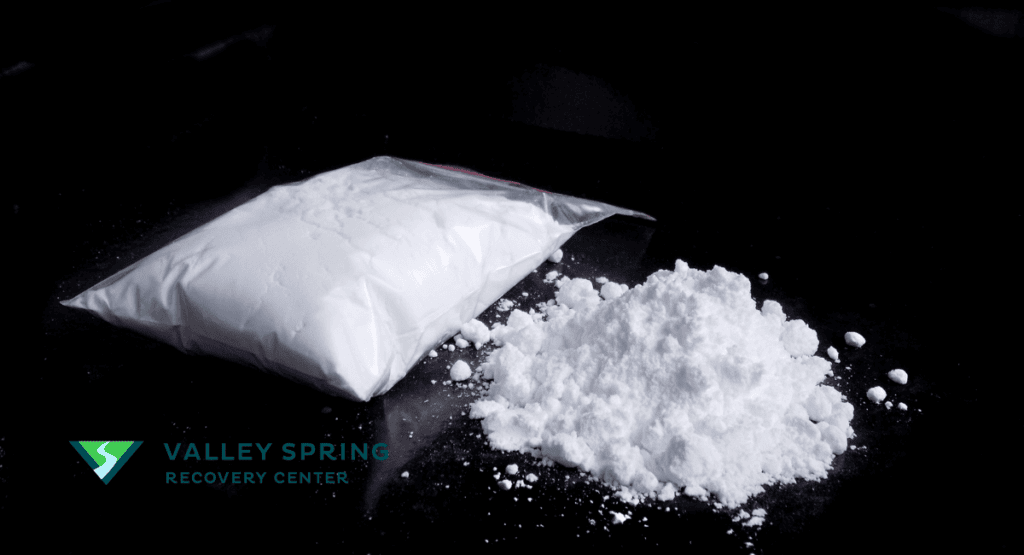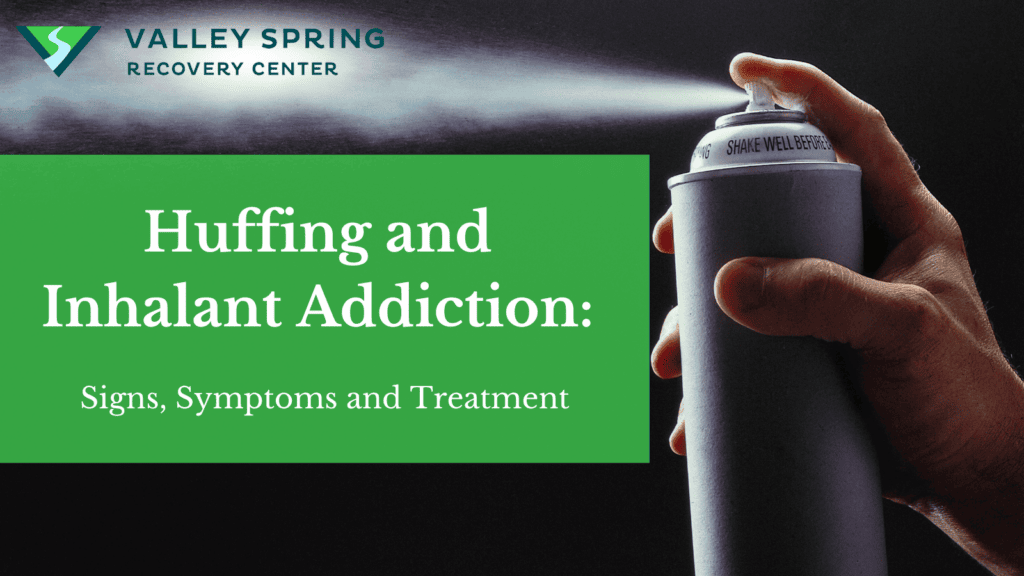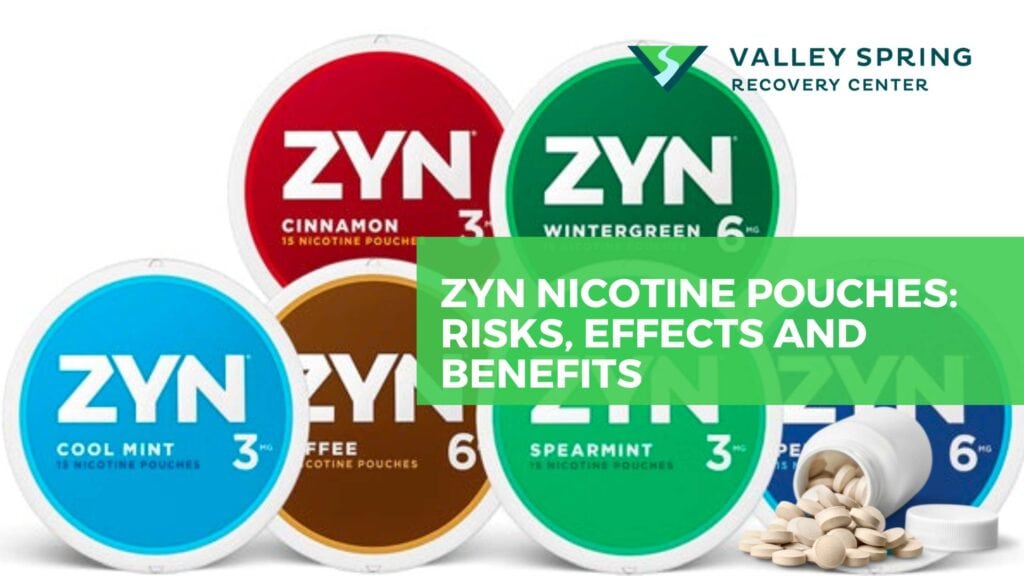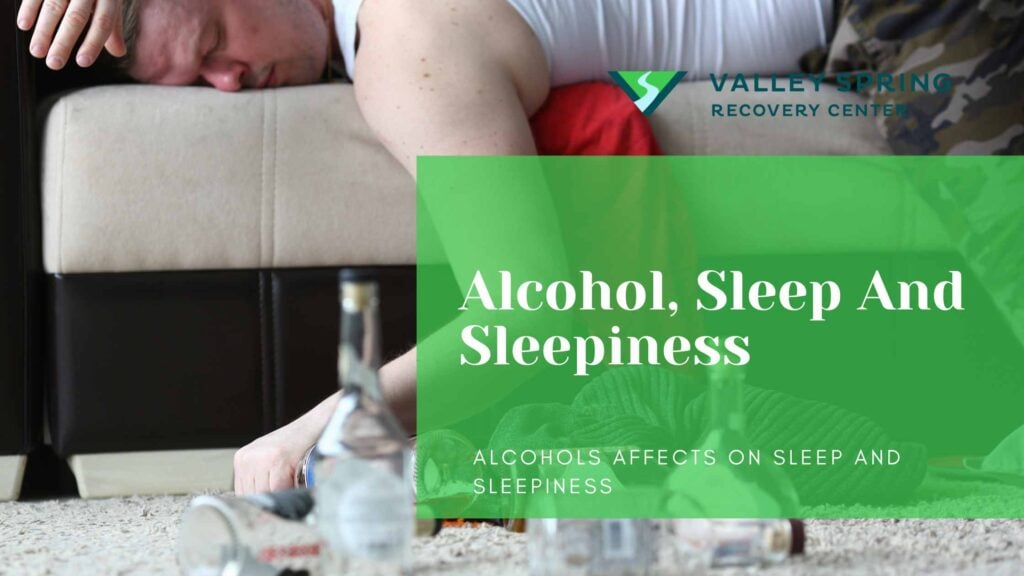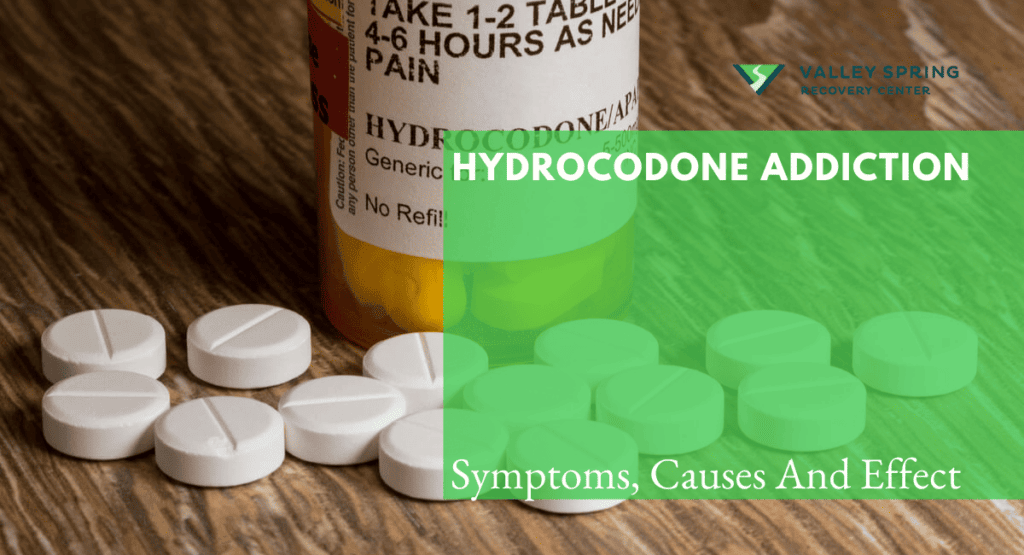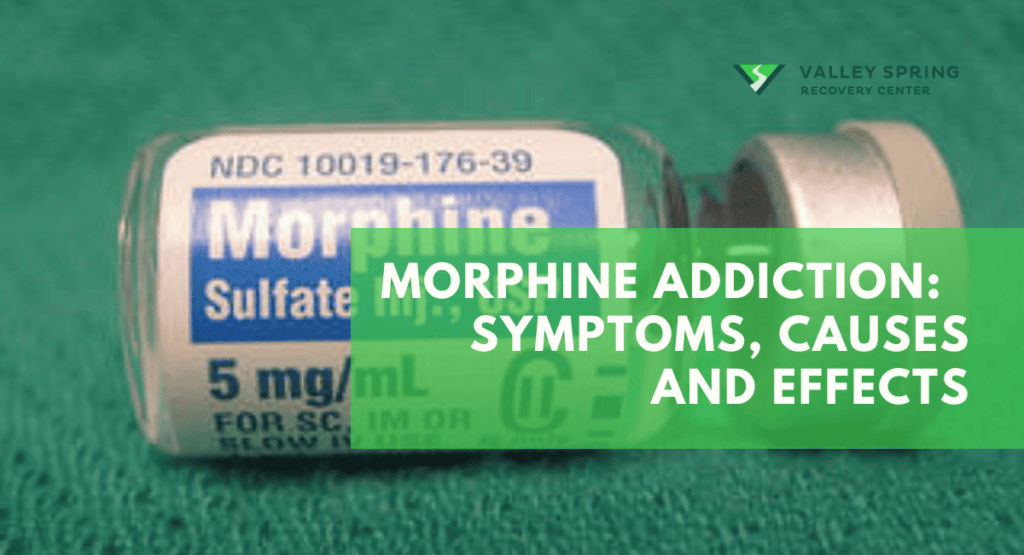Cocaine is a highly addictive stimulant drug derived from the coca plant. Cocaine addiction is a chronic, relapsing condition characterized by a compulsive need to use cocaine despite its harmful consequences.
Understanding the signs, symptoms, and statistics of cocaine addiction is crucial, as it can help individuals, families, and communities recognize and address this pervasive and destructive problem.
Recognizing these aspects can facilitate early intervention and treatment, ultimately improving the chances of recovery and reducing the societal impact of cocaine addiction.
What is cocaine?
Cocaine is a potent stimulant derived from the coca plant (Erythroxylon coca), predominantly found in South America. Classified as a Schedule II drug, it is illegal and carries a high risk of abuse due to its stimulating and euphoria-inducing properties. These effects arise from its ability to elevate levels of specific neurotransmitters like dopamine in the brain. A 2009 study by Goldstein, Rachel A et al., titled “Cocaine: History, Social Implications, and Toxicity—A Review,” revealed that while people in South America have chewed coca leaves for their stimulating effects for millennia, the isolated and purified form of cocaine has only been available for about a century. The substance undergoes a transformation from coca leaves to a purified chemical known as cocaine hydrochloride, which is often further adulterated with substances like baking powder before entering the black market.
Cocaine can be consumed in multiple forms, including a powder that is commonly snorted or injected intravenously. It can also be processed into “crack” cocaine, which is typically smoked. The drug is highly addictive and poses a range of physical and psychological health risks to users. Doctors sometimes use cocaine as a local anesthetic because of its numbing properties.
What is Cocaine Addiction?
Cocaine addiction is a long-term condition marked by an uncontrolled consumption of cocaine, even when faced with severe risks and negative consequences. Cocaine is an illegal substance with a significant likelihood of misuse.
Cocaine addicts use the substance despite clear adverse impacts. The addiction frequently entails both psychological and physiological reliance. Developing a dependency on this drug implies that an individual could undergo withdrawal symptoms when reducing cocaine intake.
Why is Cocaine Addictive?
Cocaine is highly addictive because it creates a dopamine spike in the brain associated with feelings of euphoria and increased energy that makes the users want to continue coming back for more so they can regain that feeling which dissipates quickly after use. Cocaine addiction is a disorder in which a person persistently uses cocaine despite serious consequences. Regular cocaine use produces euphoria and increased amounts of energy.
The euphoric and addictive nature of cocaine causes many users to transition from trying cocaine experimentally and recreationally to becoming full-blown addicts. Addiction and dependency set in quickly with cocaine users because the euphoric effects or high only last for a short period of time before the drugs leave the user’s system. Simultaneously, the the intensity of the high starts to lessen over time as the abuser’s body adapts and develops tolerance which causes the user to increase the frequency as well as the amount of cocaine they are using. At this stage in the addiction cycle, cocaine users may change the way in which they take cocaine in search of a better high which includes moving from snorting cocaine to intravenous use with a needle (shooting cocaine) or smoking cocaine the form of crack.
What Are The Signs and Symptoms of Cocaine Addiction?
If you are addicted to cocaine or have a loved one addicted to cocaine, there are signs and symptoms of addiction that are common among individuals who regularly take the stimulant. Since cocaine is a stimulant the signs and symptoms of abuse are similar to those of other stimulants like caffeine or Adderall but more pronounced and different from depressants like alcohol or opiates like heroin which slow down the human body instead of speed it up.
Early Symptoms:
- Pupil dilation
- Frequent sniffling or nosebleeds
- Increased energy and alertness
- Decreased appetite
- Talkativeness
- Social withdrawal
- Mood swings
- Unpredictable behavior
- Financial difficulties
- Neglect of responsibilities.
Advanced Symptoms:
- Increased tolerance to cocaine.
- Spending significant time obtaining, using, or recovering from the drug.
- Neglecting important responsibilities due to cocaine use.
- Failed attempts to quit or cut down on cocaine use.
- Cravings for cocaine.
- Continuing to use cocaine despite knowing its harmful effects.
- Social and occupational problems related to cocaine use.
- Withdrawal symptoms when not using cocaine.
- Engaging in risky behaviors while under the influence of cocaine.
- Loss of interest in previously enjoyed activities.
What Are The factors that contribute to Cocaine Addiction?
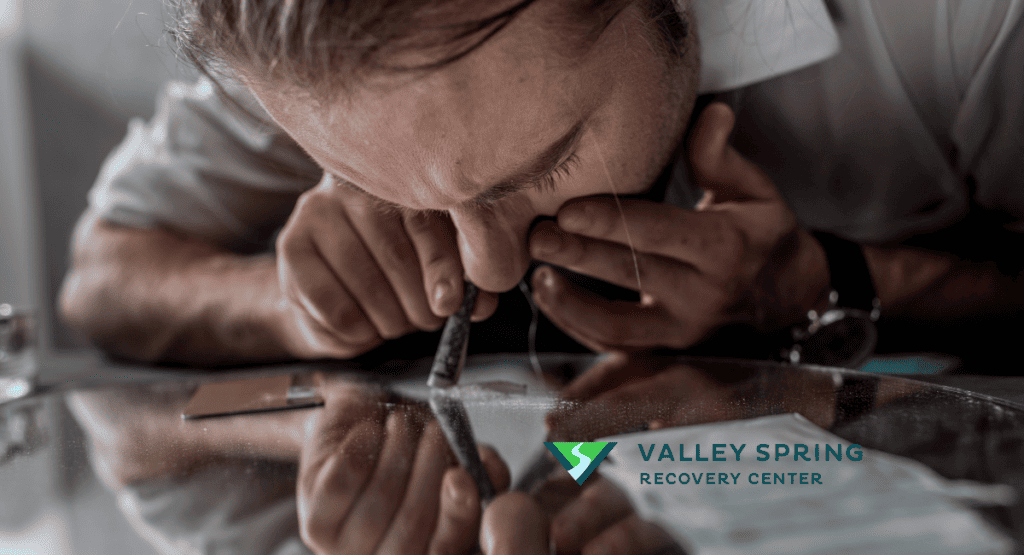
The reasons why individuals may start using cocaine and eventually become addicted are listed below:
- Biological Factors:
- Genetics: Genetic factors can play a role in an individual’s vulnerability to addiction. Some people may have a genetic predisposition that makes them more susceptible to cocaine addiction if they have a family history of substance use disorders.
- Brain Chemistry: Cocaine affects the brain’s reward system by increasing the levels of dopamine, a neurotransmitter associated with pleasure and reward. Repeated cocaine use can disrupt this system and lead to addiction.
- Neurobiological Factors: Differences in brain structure and function can influence an individual’s response to cocaine. Some individuals may experience a more intense euphoria from cocaine use, increasing the risk of addiction.
- Psychological Factors:
- Mental Health Conditions: People with underlying mental health issues, such as depression, anxiety, or post-traumatic stress disorder (PTSD), may be more prone to using cocaine as a form of self-medication. Cocaine can temporarily alleviate symptoms, but it can lead to dependence and addiction over time.
- Personality Traits: Certain personality traits, such as impulsivity, sensation-seeking behavior, and a lack of self-control, can increase the risk of substance abuse and addiction, including cocaine addiction.
- Environmental Factors:
- Peer Influence: Pressure from friends or social circles to use cocaine can lead to initial use and continued use, increasing the risk of addiction.
- Stress and Trauma: High levels of stress or exposure to traumatic events can drive individuals to seek relief from drugs like cocaine, which can lead to dependence and addiction.
- Access and Availability: Easy access to cocaine and living in an environment where the drug is prevalent can contribute to regular use and potential addiction.
- Developmental Factors:
- Early Initiation: Starting to use cocaine at a young age, particularly during adolescence when the brain is still developing, can increase the risk of addiction.
- Chronic Use: Frequent and chronic use of cocaine can lead to the development of tolerance (needing more of the drug to achieve the same effects) and dependence, which can eventually progress to addiction.
- Social and Cultural Factors:
- Perception of Harm: If an individual perceives cocaine as relatively harmless or socially acceptable, they may be more inclined to use it regularly, potentially leading to addiction.
- Economic Status: Socioeconomic factors, such as poverty or lack of access to education and employment opportunities, can contribute to drug use and addiction, including cocaine addiction.
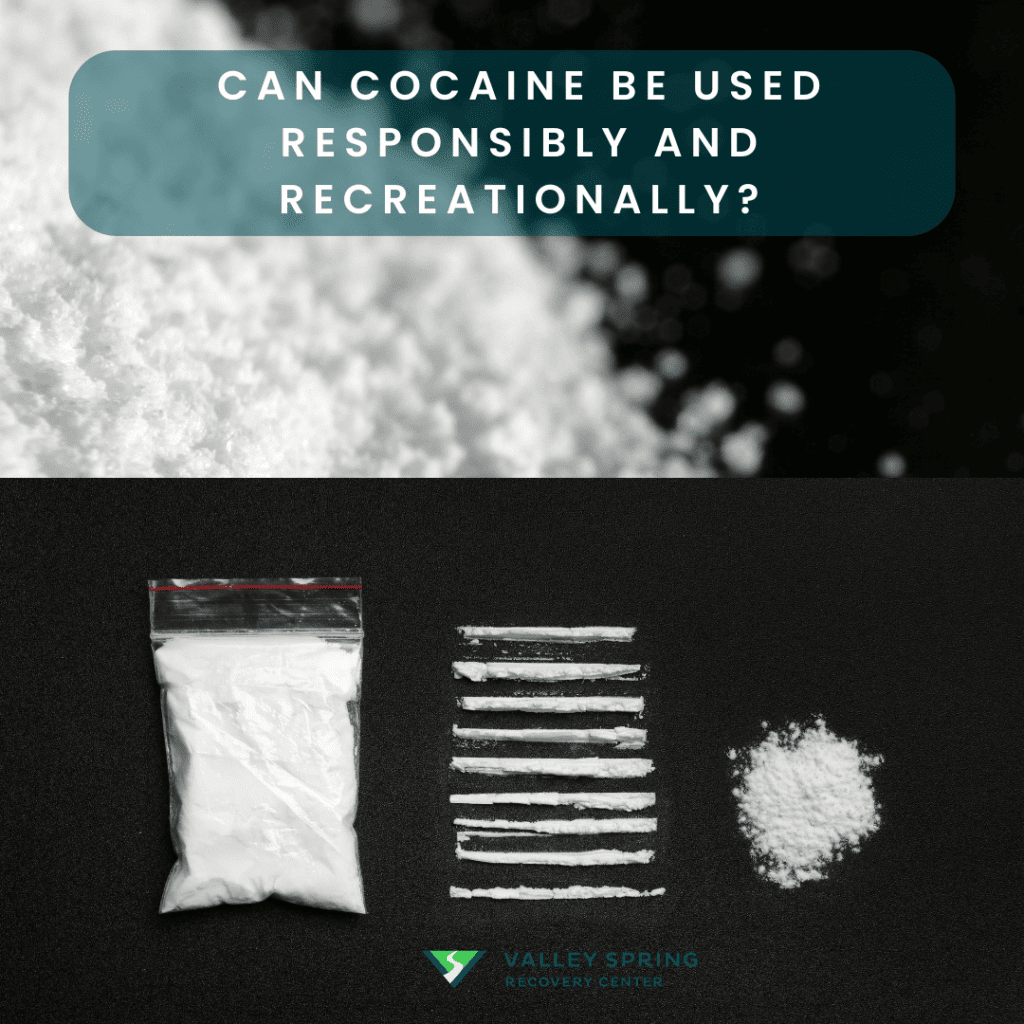
Is there a way to use cocaine responsibly and recreationally?
The addictive properties make cocaine a difficult drug to use recreationally without abusing it. Many people who use cocaine abuse the drug in binges. A subreddit asked the question if cocaine can be used responsibly, the perspective from active cocaine abusers and also recovered cocaine abusers is listed below:
I started using coke casually on weekends, maybe once a month if someone had it. I live in a fairly big city where a lot of people do it at bars and clubs on the weekend. Gradually over the last two years, I turned into a once-a-week habit on the weekends. Last weekend I went on a bender and woke up and decided I needed to stop. I can never do just one bump at a bar, I always end up buying multiple bags, staying out till the sun rises, wasting money and just feeling shameful the next day. Then the entire week I’ll be thinking about how much of a bad person I am, then Friday night rolls around again and I’m ready to spend a ton of money on doing blow all night again. Once I do blow every worry I have about doing blow goes away, till I wake up the next morning and I just ask myself why I’m doing this. How do people do cocaine responsibly? Does that even exist? So many college girls are just doing Coke every single weekend, do they really just not suffer the same consequences? I’m 25 for reference.A reditor responded: “I don’t think it’s possible to use cocaine recreationally or experimentally without abusing it.”
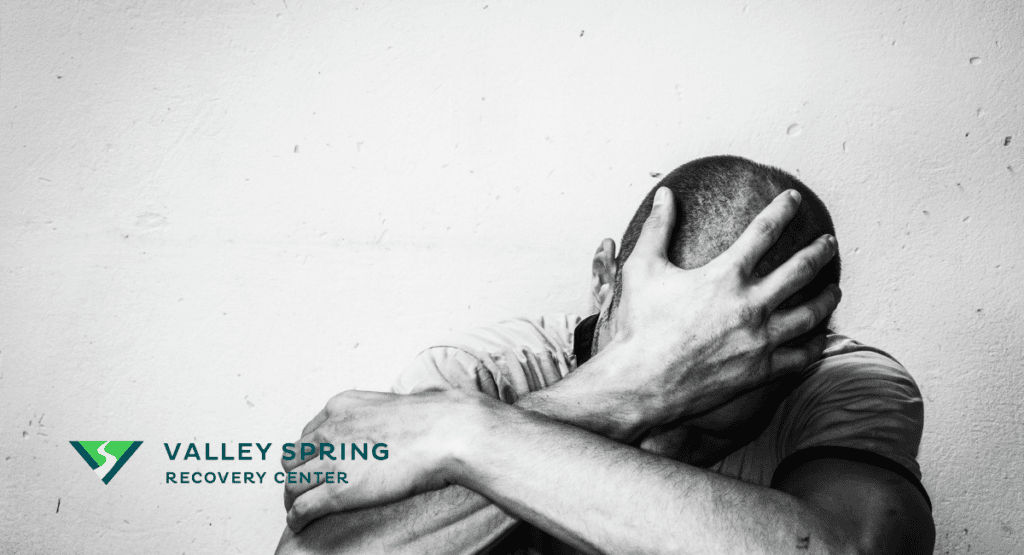
What Are The Effects Of Cocaine Addiction?
The effects of cocaine include increased metabolism, blood pressure, and heart rate as well as feelings of euphoria and increased energy. Cocaine use has mental side effects including anxiety, stress and sometimes hallucinations (formication). Physical effects include weight loss and loss of appetite as well as other side effects that occur from overstimulation like picking at skin and heart issues amongst others listed below:
- Frequent and intense cravings for cocaine.
- Loss of control over cocaine use, leading to increased consumption.
- Neglecting responsibilities at work, school, or home due to cocaine use.
- Withdrawal symptoms such as fatigue, depression, and irritability when not using cocaine.
- A noticeable increase in tolerance, requiring more cocaine to achieve the desired effects.
- Spending a significant amount of time obtaining, using, or recovering from cocaine use.
- Social withdrawal and a decline in interpersonal relationships.
- Engaging in risky behaviors while under the influence of cocaine.
- Financial difficulties and persistent attempts to obtain money for cocaine.
- Neglecting personal hygiene and appearance.
- Loss of interest in previously enjoyed activities.
- Failed attempts to quit or cut down on cocaine use.
- Continued cocaine use despite knowing it causes physical or psychological problems.
Recognizing these signs and symptoms of addiction can be crucial in providing early intervention and support for individuals struggling with cocaine addiction.
Physical Effects
- Dilated pupils
- Frequent nosebleeds
- Weight loss
- Runny or stuffy nose
- Track marks or injection sites (if cocaine is injected)
- Dental problems, often referred to as “cocaine mouth”
- Burns or blisters on lips or fingers (from smoking crack cocaine)
- Increased heart rate and blood pressure
- Restlessness or hyperactivity
- Tremors or muscle twitches
Behavioural Effects
- Erratic and impulsive behavior
- Frequent mood swings
- Social withdrawal and isolation
- Neglect of responsibilities at work, school, or home
- Unexplained financial difficulties
- Engaging in risky behaviors to obtain cocaine
- Increased secrecy and lying about drug use
- Neglect of personal hygiene and appearance
- Relationship problems and conflicts with loved ones
- Legal issues related to drug use.
Emotional Effects
- Anxiety
- Paranoia
- Agitation
- Irritability
- Depression
- Mood swings
- Unpredictable emotional reactions
- Emotional numbness or detachment
- Increased sensitivity to stress
- Euphoria followed by severe crashes in mood.
What is Formication And How Is It Related To Cocaine Addiction?
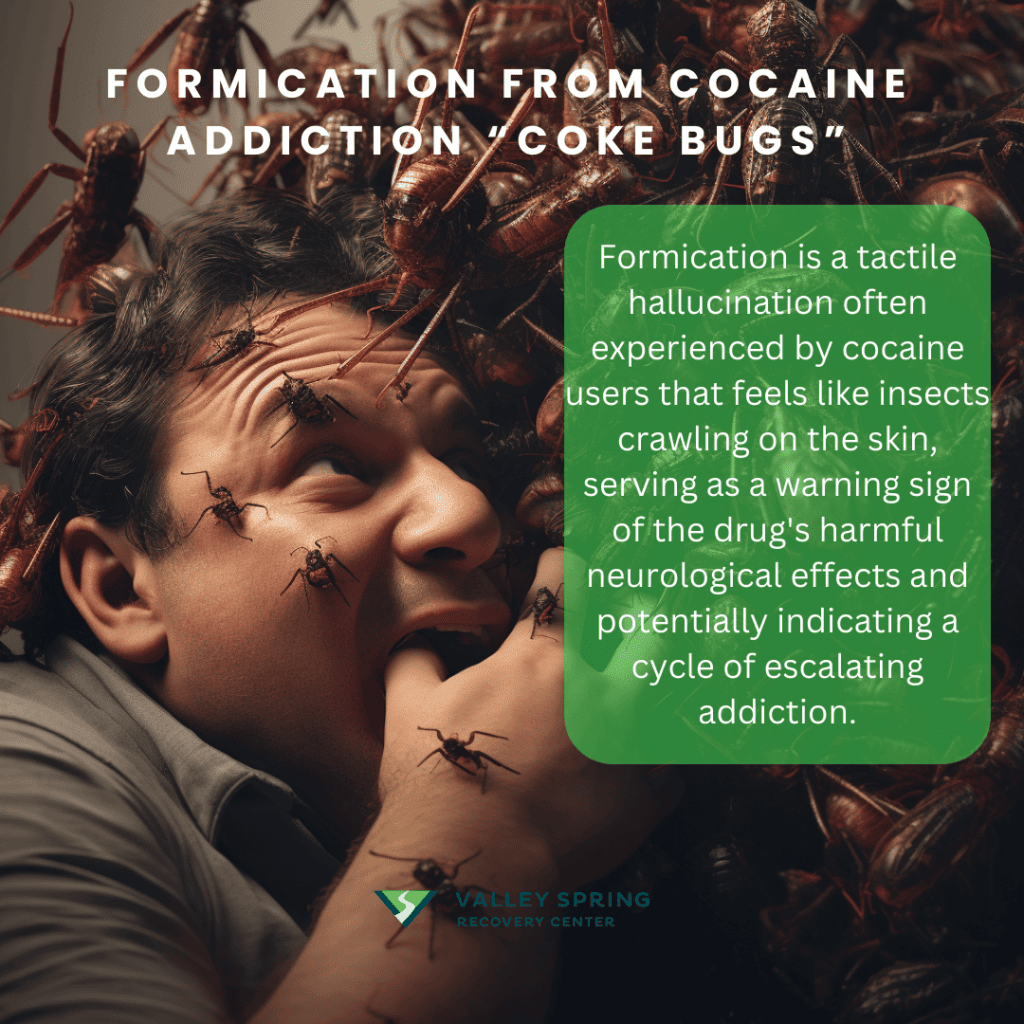
Formication is a tactile hallucination that gives individuals the sensation of insects crawling on or under their skin. This phenomenon is not only unsettling but can also be a significant indicator of a severe issue, particularly in the context of cocaine addiction. Cocaine users often experience formication during or after use, and it serves as a warning sign of the drug’s detrimental neurological and psychological effects.
Cocaine is a powerful stimulant that affects the central nervous system, leading to heightened senses and increased levels of dopamine. However, excessive use can disrupt neural pathways, causing a range of symptoms, including formication. The sensation is often referred to as “coke bugs” among users and can lead to obsessive scratching or picking at the skin, causing self-inflicted wounds and potential infections.
Formication can serve as a red flag for escalating cocaine use. The experience of tactile hallucinations like formication often indicates a high level of toxicity in the body and may signify the onset of “cocaine psychosis,” a condition characterized by paranoid delusions and hallucinations. Therefore, the occurrence of formication should be taken as a serious warning sign that immediate intervention is needed.
How Does Cocaine Affect the Brain?
Cocaine exerts its profound effects on the brain by rapidly increasing the levels of dopamine, a neurotransmitter associated with pleasure and reward, leading to intense euphoria and subsequently disrupting various brain regions responsible for judgment, decision-making, and impulse control, ultimately contributing to addiction and a range of cognitive and emotional disturbances.
Use of cocaine, like other drugs of abuse, induces long-term changes in the brain. Animal studies show that cocaine exposure can cause significant neuroadaptations in neurons that release the excitatory neurotransmitter glutamate.
Source: Ann N Y Acad Sci. Schmidt HD, Pierce RC.
Although addiction researchers have focused on adaptations in the brain’s reward system, drugs also affect the brain pathways that respond to stress. (NIDA. 2020)
What Withdrawal Challenges Are Associated With Cocaine Dependence?
Cocaine has strong physical side effects that occur when you stop taking it, but not as much as other addictive drugs like opiates. A lot of the withdrawal challenges are mental in nature. Here are some of the withdrawal symptoms you or a loved one may experience when cocaine use is discontinued.
- Intense Cravings: Individuals often experience strong cravings for cocaine during withdrawal, making it difficult to resist the urge to use again.
- Emotional Distress: Cocaine withdrawal can lead to feelings of depression, anxiety, irritability, and even paranoia, which can be emotionally distressing.
- Fatigue: Users may feel extreme fatigue and exhaustion during withdrawal, which can impact their ability to function normally.
- Anhedonia: Cocaine withdrawal is associated with an inability to experience pleasure, which can lead to profound feelings of emptiness and dissatisfaction.
- Sleep Disturbances: Disrupted sleep patterns, including insomnia and vivid dreams, are common during withdrawal.
- Physical Symptoms: Cocaine withdrawal can include physical symptoms like headaches, muscle pain, chills, and tremors.
- Crashes: Users may experience “crashes” where they go from feeling euphoric to severely depressed, contributing to the cycle of addiction.
- Suicidal Ideation: In severe cases, some individuals may have thoughts of self-harm or suicide during withdrawal.
How Common Is Cocaine Addiction?
The statistics and prevalence of cocaine addiction is a concerning public health issue characterized by the widespread use of this powerful stimulant drug and the significant challenges it poses to individuals, families, and communities worldwide. The statistics are listed below:
- Prevalence: Cocaine addiction has been a significant concern globally. In the year 2021, approximately 0.4 percent of individuals aged 12 or older, equivalent to 996,000 people, reported past-year use of crack cocaine. (SAMSHA)
In 2019, approximately 5.5 million people aged 12 or older in the U.S. reported using cocaine in the past year, according to the National Survey on Drug Use and Health (SAMSHA). - Regional Variations: The prevalence of cocaine addiction varies by region, with higher rates in some areas, particularly in North America and parts of Europe.
- Health Consequences: Cocaine addiction can have severe health consequences, including cardiovascular issues, mental health problems, and social consequences such as job loss and strained relationships.
- Treatment: Various treatment options are available for cocaine addiction, including therapy and support groups. However, recovery can be challenging, and relapse rates are relatively high.
In 2019, around 1 million individuals received treatment for cocaine use disorder. (UNODC) - Fatal Overdoses: Cocaine was involved in a significant number of drug-related overdose deaths. The CDC reported that in 2019, there were over 15,800 overdose deaths involving cocaine. (CDC)
- Demographics: Cocaine use was more common among young adults aged 18 to 25, males, and urban residents.
What is the history of cocaine?
Cocaine has a long and complicated historical background.
- Ancient Use: Coca, the plant from which cocaine is derived, has been cultivated and used for thousands of years by indigenous people in South America. They chewed coca leaves for their stimulating effects and to alleviate altitude sickness.
- Isolation of Cocaine: In the mid-19th century, a German chemist named Albert Niemann isolated cocaine from coca leaves, leading to its use in various medical applications.
- Medicinal Use: In the late 19th and early 20th centuries, cocaine was widely used in medicine as a local anesthetic, as well as in tonics, elixirs, and even in the original formulation of Coca-Cola.
- Cocaine’s Recreational Use: As the addictive and harmful nature of cocaine became apparent, its recreational use surged in the late 19th and early 20th centuries, particularly in urban centers like New York.
- Legal Restrictions: Recognizing its dangers, various countries started imposing legal restrictions on cocaine in the early 20th century. The Harrison Narcotics Tax Act of 1914 in the United States marked a significant turning point in regulating cocaine.
- Rise of Illicit Trade: Despite restrictions, illicit production and trafficking of cocaine expanded in the mid-20th century, primarily in South America. This led to the emergence of powerful drug cartels, such as the Medellín and Cali cartels in Colombia.
- Cocaine Epidemic: In the 1980s and early 1990s, the United States and other countries faced a cocaine epidemic, with widespread addiction and violence associated with the drug.
- Anti-Drug Efforts: Governments worldwide have implemented various measures to combat the cocaine trade, including law enforcement operations, crop eradication programs, and international cooperation.
- Current Status: Cocaine remains illegal in most countries due to its high potential for addiction and negative health effects. Efforts to reduce its production, trafficking, and consumption continue.
Cocaine’s history is marked by both its medical use and its destructive impact when used recreationally. It has been a subject of ongoing public health and law enforcement challenges.
How Is Cocaine Ingested?
Cocaine can be consumed in several ways, each with varying effects and risks. Here are some common methods of consuming cocaine:
- Snorting: Snorting cocaine involves finely chopping the drug into a powder and then inhaling it through the nose. The powder is absorbed through the nasal membranes, leading to a relatively rapid onset of effects (within minutes). This method is less risky than some other forms of consumption but can still damage the nasal passages over time.
- Smoking: Cocaine can be converted into a form known as “crack cocaine” or simply “crack.” Crack cocaine is smoked in a pipe or as part of a cigarette or joint. Smoking produces an intense, short-lived high but can be highly addictive and harmful to the respiratory system.
- Injecting: Some users dissolve cocaine powder in water and then inject it directly into their bloodstream using a syringe. This method produces an almost immediate and intense high, but it carries significant health risks, including the risk of infections, vein damage, and overdose.
- Freebasing: Freebasing is a process where cocaine powder is chemically altered to create a smokable form of the drug. It produces a rapid and intense high but is extremely dangerous due to the use of flammable chemicals in its production.
- Oral Consumption: While less common, some individuals consume cocaine orally by mixing it with a liquid or in a pill form. This method has a slower onset of effects compared to other routes, and the drug must pass through the digestive system.
- Topical Application: Cocaine can also be applied topically, such as in the form of a paste or cream. Medical professionals sometimes use it as a local anesthetic for certain medical procedures. When used in this manner, the risk of addiction and overdose is minimal.
What Is The Difference Between Cocaine And Crack?
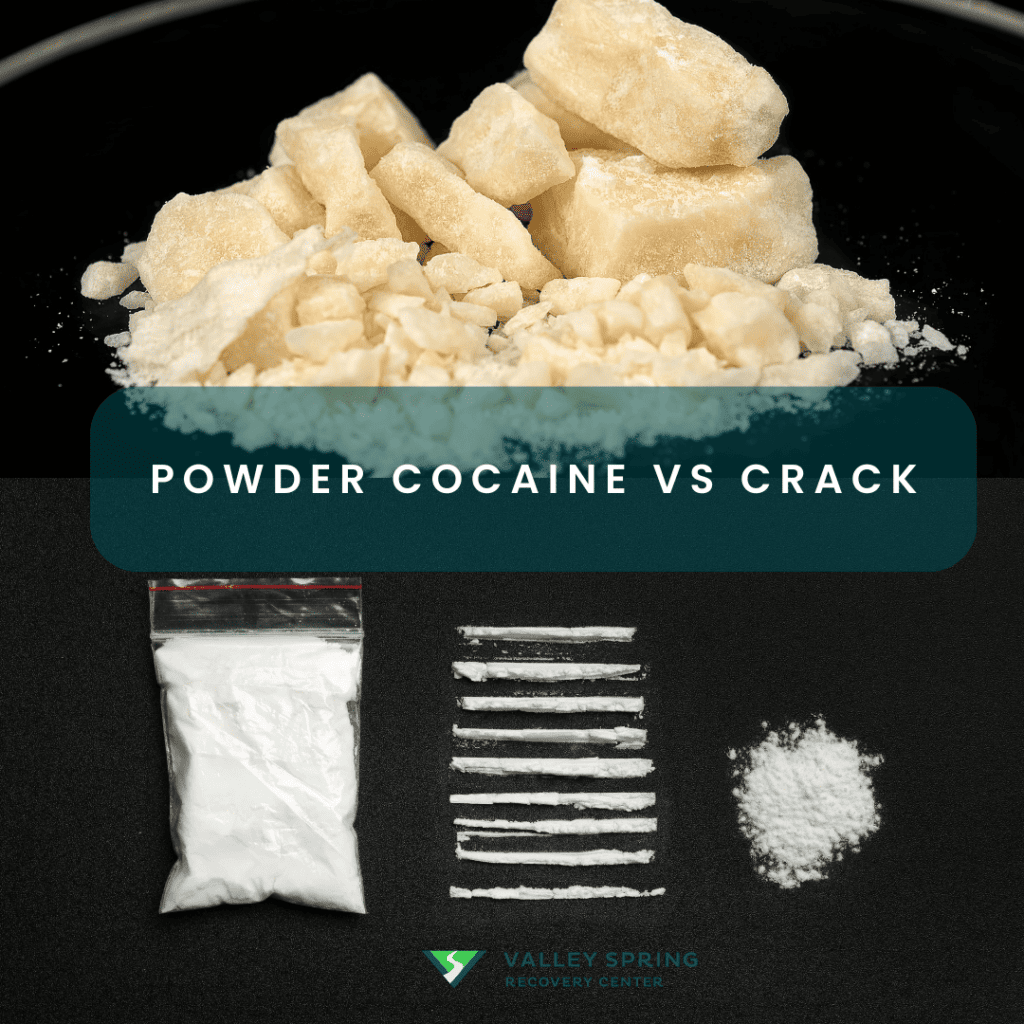
Cocaine and crack are both powerful stimulant drugs derived from the coca plant, but they differ in several key ways, including their chemical composition, form, methods of use, and effects. Here are the main differences between cocaine and crack:
- Chemical Composition:
- Cocaine: Cocaine, often referred to as “powder” or “coke,” is a hydrochloride salt derived from the coca plant. It is usually sold as a white powder and is water-soluble.
- Crack: Crack, also known as “crack cocaine” or simply “crack,” is a chemically altered form of cocaine. It is made by mixing powdered cocaine with baking soda or another base and heating it to form solid, rock-like crystals. Crack is the freebase form of cocaine and is not water-soluble.
- Appearance:
- Cocaine: Cocaine is typically found as a white powder and is commonly snorted through the nose, although it can also be dissolved and injected or rubbed on the gums.
- Crack: Crack appears as small, off-white, or tan-colored rocks or crystals. It is typically smoked using a pipe, which produces a crackling sound, giving it its name.
- Method of Use:
- Cocaine: Cocaine powder is usually snorted, but it can also be dissolved and injected into the bloodstream or applied to mucous membranes (e.g., gums).
- Crack: Crack is primarily smoked. The heat vaporizes the drug, allowing it to be inhaled into the lungs, producing a rapid and intense high.
- Onset and Duration of Effects:
- Cocaine: The effects of cocaine, when snorted or injected, typically come on more slowly and last for a shorter duration (around 15-30 minutes).
- Crack: Smoking crack produces a much quicker and more intense high, but it also has a shorter duration of effects (typically 5-10 minutes).
- Potency and Intensity:
- Cocaine: Cocaine powder is less potent than crack, and its effects are often described as a euphoric, energetic high.
- Crack: Crack is highly potent, resulting in an intense and almost immediate rush of euphoria. However, the intensity is short-lived and often followed by a strong craving for more.
- Cost:
- Cocaine: Cocaine powder is usually more expensive per gram than crack, making it less accessible to some users.
- Crack: Crack is less expensive per dose, making it more affordable for some individuals.
- Risks and Addiction Potential:
- Cocaine: Both cocaine and crack carry a high risk of addiction and can have serious physical and psychological health consequences. However, crack is often considered more addictive due to its rapid and intense effects.
Spring Valley Recovery Is Only One Phonecall Away
How To Overcome Cocaine Addiction?
Outpatient treatment can be an effective option for individuals who have a lower level of addiction severity, a supportive living environment, and a strong motivation to recover.
The initial step in conquering cocaine addiction is acknowledging the existence of a problem and expressing a willingness to seek professional assistance for recovery.
For those whose addiction has escalated to a level of physical dependency and involves the use of other substances, inpatient residential treatment may be essential. This intensive form of care often includes medically supervised detoxification, individual and group therapy, and medication management to address the complexities of addiction.
Following successful completion of residential treatment, transitioning to outpatient care is a constructive next step. Outpatient programs typically incorporate various therapeutic approaches, such as Cognitive Behavioral Therapy (CBT), Dialectical Behavior Therapy (DBT), and other evidence-based treatments. These therapies aim to equip individuals with the coping skills and strategies needed to maintain sobriety and prevent relapse.
In addition to formal treatment options, participation in self-help groups can offer invaluable emotional support. These groups, often facilitated by peers who have successfully navigated their own recovery journeys, provide a safe space for sharing experiences, challenges, and triumphs. They can serve as an additional layer of support and accountability for individuals grappling with cocaine addiction.
By combining these various approaches—acknowledging the problem, seeking inpatient and outpatient treatment like the Valley Spring outpatient addiction program in New Jersey, and engaging in self-help groups—you can create a comprehensive recovery plan tailored to your unique needs and challenges.
What Are The Treatment Options For Cocaine Addiction?

Treatment options for cocaine addiction encompass a range of evidence-based approaches designed to address the physical, psychological, and social aspects of addiction, offering hope and support for individuals on their journey to recovery.
Inpatient treatment, often referred to as residential rehab, is an intensive and structured approach for individuals struggling with cocaine addiction. It typically involves:
- Residential Stay: Patients reside at a treatment facility for an extended period, often ranging from a few weeks to several months, depending on their needs.
- Detoxification: Inpatient programs typically start with a medically supervised detox phase to manage withdrawal symptoms safely.
- Therapy: Various forms of individual and group therapy are central to inpatient treatment. Cognitive-behavioral therapy (CBT), contingency management, and motivational enhancement therapy are commonly used approaches.
- Medical and Psychological Support: Patients receive comprehensive medical and psychological assessments, along with ongoing support for any co-occurring mental health issues.
- Structured Environment: Inpatient facilities provide a highly structured and controlled environment, minimizing exposure to triggers and temptations associated with drug use.
- Peer Support: Patients benefit from the support of peers facing similar challenges, fostering a sense of community and understanding.
- Education: Educational sessions on addiction and relapse prevention help patients develop crucial skills to maintain sobriety.
Outpatient treatment is a more flexible approach for individuals with cocaine addiction who don’t require the intensity of inpatient care. It typically involves:
- Scheduled Sessions: Patients attend scheduled therapy and counseling sessions at a treatment center while living at home or in a supportive environment.
- Individual and Group Therapy: Similar to inpatient treatment, outpatient programs offer various forms of therapy, including individual counseling and group therapy sessions.
- Medication Management: In some cases, outpatient treatment may include medication-assisted therapy (MAT) to help manage cravings and withdrawal symptoms.
- Education: Patients receive education about addiction, triggers, and relapse prevention strategies.
- Family Involvement: Family therapy or counseling may be included to address family dynamics and support the recovery process.
- Flexibility: Outpatient treatment allows individuals to maintain work, school, or family responsibilities while seeking treatment.
What Is The Importance of Support Systems In Treatment?
Support systems are crucial for individuals struggling with substance abuse, including cocaine addiction. These systems provide emotional, practical, and sometimes medical assistance to help individuals on their journey to recovery. Here are some key points on the importance of support systems for those dealing with cocaine addiction:
- Emotional Support: Cocaine addiction can be isolating and emotionally draining. Support from family, friends, or support groups can provide a safe space for individuals to express their feelings, fears, and anxieties, reducing the emotional burden.
- Accountability: Support systems help individuals stay accountable for their actions and recovery goals. Knowing that someone is there to check on their progress can motivate them to stay on track.
- Encouragement: Support systems can offer encouragement and positive reinforcement, boosting an individual’s confidence in their ability to overcome addiction.
- Resources and Information: Support networks often have access to valuable resources and information about addiction treatment options, therapy, and counseling, helping individuals make informed decisions.
- Relapse Prevention: A support system can play a critical role in relapse prevention. Loved ones and peers can help identify triggers and provide assistance during challenging times.
- Access to Treatment: Support systems can assist in finding and accessing appropriate treatment programs, whether it’s outpatient therapy, inpatient rehabilitation, or detoxification services.
- Reduce Stigma: Having a support system can reduce the stigma associated with addiction, making individuals more comfortable seeking help and treatment.
- Long-Term Recovery: Recovery is an ongoing process, and a strong support system can provide continuous support, helping individuals maintain their sobriety and make positive life changes.
Sources
- https://www.samhsa.gov/data/sites/default/files/reports/rpt29393/2019NSDUHFFRPDFWHTML/2019NSDUHFFR090120.htm#
- https://www.cdc.gov/
- https://www.samhsa.gov/data/sites/default/files/reports/rpt39443/2021NSDUHFFRRev010323.pdf
- https://www.unodc.org/unodc/en/frontpage/2019/June/world-drug-report-2019_-35-million-people-worldwide-suffer-from-drug-use-disorders-while-only-1-in-7-people-receive-treatment.html
- Schmidt HD, Pierce RC. Cocaine-induced neuroadaptations in glutamate transmission: potential therapeutic targets for craving and addiction. Ann N Y Acad Sci. 2010;1187:35-75. doi:10.1111/j.1749-6632.2009.05144.x.
- NIDA. 2020, May 28. What are some ways that cocaine changes the brain? . Retrieved from https://nida.nih.gov/publications/research-reports/cocaine/what-are-some-ways-cocaine-changes-brain on 2023, September 17
Kristy Ashe
All author postsShare This Post

